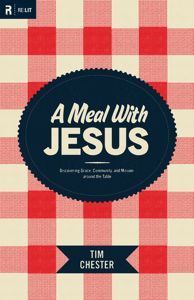Justin Taylor's Blog, page 332
May 4, 2011
Carson on Abusing Matthew 18
D. A. Carson, in the editorial for the new edition of Themelios:
Several years ago I wrote a fairly restrained critique of the emerging church movement as it then existed, before it morphed into its present diverse configurations. That little book earned me some of the angriest, bitterness-laced emails I have ever received—to say nothing, of course, of the blog posts. There were other responses, of course—some approving and grateful, some thoughtful and wanting to dialogue. But the ones that displayed the greatest intensity were those whose indignation was white hot because I had not first approached privately those whose positions I had criticized in the book. What a hypocrite I was—criticizing my brothers on ostensible biblical grounds when I myself was not following the Bible's mandate to observe a certain procedure nicely laid out in Matt 18:15–17.
Doubtless this sort of charge is becoming more common. It is regularly linked to the "Gotcha!" mentality that many bloggers and their respondents seem to foster. Person A writes a book criticizing some element or other of historic Christian confessionalism. A few bloggers respond with more heat than light. Person B writes a blog with some substance, responding to Person A. The blogosphere lights up with attacks on Person B, many of them asking Person B rather accusingly, "Did you communicate with Person A in private first? If not, aren't you guilty of violating what Jesus taught us in Matthew 18?" This pattern of counter-attack, with minor variations, is flourishing.
To which at least three things must be said. . . .
Read the whole thing. I hope it will help to put some of this reasoning to rest.
9Marks eJournal on Church Membership
 The latest 9Marks eJournal is now online, dealing with the issues of church membership in particular. (The whole thing is also available as one PDF.)
The latest 9Marks eJournal is now online, dealing with the issues of church membership in particular. (The whole thing is also available as one PDF.)
Matt Chandler pens the lead-off article, "Is Church Membership Biblical?"
There are also several book reviews on broader topics. In particular, I noted Owen Strachan's lengthy, respectful interaction with Gabe Lyons's new book on The Next Christians.
May 3, 2011
A Meal with Jesus: Discovering Grace, Community, and Mission around the Table
 The Crossway blog has a fascinating interview (reprinted below) with Tim Chester about his new book, A Meal with Jesus: Discovering Grace, Community, and Mission Around the Table.
The Crossway blog has a fascinating interview (reprinted below) with Tim Chester about his new book, A Meal with Jesus: Discovering Grace, Community, and Mission Around the Table.
You can read the introduction to the book online.
What does food have to do with grace, church, and mission?
Everything! Just think about how often food figures in the Bible story or how much of church life involves meals. I don't think this is incidental.
Food expresses our dependence on God and on other people.
Meals embody friendship and welcome.
So food is a powerful way of doing mission and community. The Son of Man, Jesus says in Luke 7, came eating and drinking—this was the way Jesus did mission.
What do you mean when you say the way Jesus did meals was "radically subversive?"
Meals in Jesus' day were highly stratified.
Roman meals expressed the social order Jewish meals were similar (think of the jockeying for position in Luke 14) with the added twist that Levitical food laws made it all but impossible for Jews to eat with Gentiles. So meals expressed who were the insiders and who were the outsiders.
Jesus turns all of this upside down or, perhaps I should say, inside out! Outsiders become insiders around the table with Jesus.
How do the meals of Jesus image the gospel?
Let's take one example. Jesus ate with tax collectors. Tax collectors were collaborators with the Romans, the people who were occupying God's promised land. This meant they were not only betraying the nation, but they were enemies of God. God sits and eats with his enemies. That's what happening in the meals of Jesus. It's an amazing expression of gospel grace.
You would not believe it if it were not in the Scriptures. The Pharisees certainly could not believe it. And that is without considering how the feeding of the 5,000 points to the messianic banquet of the future or how the last supper points to the cross.
How would you practically encourage readers to begin associating with the marginalized?
No doubt there are lots of ways to begin, but in the book I highlight the importance of eating with people.
There is a danger that if we only "do" things "for" people then we communicate by our actions "I am able and you are unable." Then the message we convey is not the welcome of God, but the message "become like me." We may talk of grace with our words, but our actions communicate the need for social or moral improvement. But when we sit and eat with one another then we are together round the table. Then we can speak of grace as fellow sinners.
You say that our meals actually express our doctrine of justification. Can you explain that?
Paul's great exposition of the doctrine of justification in the letter to the Galatians is sparked by a meal, by Peter's refusal to eat with Gentiles. This is where a false doctrine of justification led: to broken table fellowship. Why? Because meals are such a central and powerful expression of community (and the withdrawal of community).
It was the same with the meals of the Pharisees. Their sense of how we are made right with God was reflected in their meals; their meals expressed who were insiders and outsiders on the basis of moral and religious respectability. The ladder of self-righteousness was represented in the positions of honor around the table.
But Jesus freely eats with tax collectors and sinners. He expresses God's grace through his willingness to eat with everyone—even self-righteous Pharisees!
I'm not saying justification is merely about who we eat with. It is about how we are made right with God through faith in the finished work of Christ. But this will then be reflected who we associate with and on what basis. Our meals will mirror our doctrine.
How do your "missional communities" work?
That's a big question! Our meetings always involve a meal. Plus we encourage people to share lives throughout the week as well as involving unbelievers in that shared life—and that often involves sharing food.
But meals don't make community. They embody or express it . . . and I can't imagine doing community without meals. But it's the gospel that creates community. This is what makes communities "work."So in fact we called our missional communities "gospel communities." (But then you can't talk about the gospel story for long without bumping into a meal!)
Do you have practical steps readers can take to encourage them to grow in initiating missional meals?
The great thing about using meals to do community and mission is that it doesn't add anything to your busy schedule. We already have 21 ready-made opportunities each week. Nor do you have some kind to special missiological training. You just need to love Jesus, love people and enjoy eating!
It doesn't have to be anything fancy. Sometimes you may want to make a special effort and celebrate the goodness of creation in a fancy meal. But most of the time it is just a question of sharing an ordinary meal with people.
Invite members of your Christian community for your evening meal.
Meet up for breakfast with someone on the way yo work.
Use lunch in the canteen to get to know your colleagues.
If you're single, then entertaining families might be difficult, but invite them for dessert or cake.
Try to invite unbelievers together with believers so your unbelieving friends are introduced to the Christian community and get to see how Christians relate.
How can meals express a vision of the kingdom of God?
Once you start looking for it, it's amazing how often food is used to express both judgment and salvation.
A meal in the presence of God is the goal of salvation.
The first thing God does for Adam and Eve in the garden is given them a menu, the fruit of every tree (except one).
The climax of the exodus (an act of salvation commemorated in a meal) is when the elders of Israel eat with God on the mountain in Exodus 24.
Isaiah promises a messianic banquet of rich foods that will never end in Isaiah 25 and Jesus anticipates this perpetual meal with God in the feeding of the 5,000, a meal with more food at the end than at the beginning.
The last supper looks forward to the time when Jesus will eat with his disciples in the kingdom of God.
And the Bible story ends with a meal as we celebrate the wedding supper of the Lamb in Revelation 19.
Every time we eat together as Christians we are anticipating this hope.
Tornadoes and the Trustworthiness of God
This sermon by David Platt, pastor of The Church at Brook Hills in Birmingham, Alabama, is a good model of how basic biblical doctrine can and should inform our response to tragedy and equip us to trust in God's good purposes.
Specifically, he explains how the tornadoes that recently ravaged their area can remind us of biblical truth.
Here is an outline:
These tornadoes remind us that this world is unpredictable.
Suffering is usually surprising.
Life is never safe.
Death is unavoidably sure.
These tornadoes remind us of the penalty of sin which plagues all of us.
Our sin is universal.
Our suffering is inevitable.
These tornadoes remind us to repent and be reconciled to God.
Turn from sin.
Trust in Him.
These tornadoes remind us of the sovereignty of our God.
The sovereignty of God is the only foundation for worship in the midst of tragedy.
God's sovereignty assures us that He is in control.
God is with us.
God is for us.
God's sovereignty reminds us that Satan has been conquered.
God's sovereignty guarantees us that one day suffering will conclude.
Ultimately, tragedy on earth can only be understood rightly from the perspective of heaven.
These tornadoes remind us of the urgency of our mission.
Life is fleeting.
People are perishing.
Eternity is coming.
Is Being a News Junkie Worth It?
Out of the approximately 10,000 news stories you have read in the last 12 months, name one that—because you consumed it—allowed you to make a better decision about a serious matter affecting your life, your career, your business—compared to what you would have known if you hadn't swallowed that morsel of news.
. . . Assume that, against all odds, you found one piece of news that substantially increased the quality of your life—compared to how your life would have unfolded if you hadn't read or seen it. How much trivia did your brain have to digest to get to that one relevant nugget? Even that question is a hindsight analysis. Looking forward, we can't possibly identify the value of a piece of news before we see it, so we are forced to digest everything on the news buffet line. Is that worthwhile? Probably not.
Joe Carter, in highlighting this quote, wrote:
The problem is that your behavior is considered aberrant if you don't join in daily news consumption. This is a peculiar bias. If you refuse to indulge in Twinkies, junk food junkies don't assume you are undernourished. Yet if you refuse to gorge on news, news junkies assume you are under-informed. Why is that?
The Two Kingdoms and the Natural Law
Mark Dever interviews David VanDrunen on the natural law and the doctrine of the two kingdoms.
(VanDrunen's historical work on this subject can be found in Natural Law and the Two Kingdoms: A Study in the Development of Reformed Social Thought and his more popular-level work can be found in Living in God's Two Kingdoms: A Biblical Vision for Christianity and Culture.)
60 Hours of Theological Training for $6.99!
Romans 12: Imperatives in View of God's Mercies
The "therefore" at the start of Romans 12 can be taken to mean, "the exhortations that follow in light of Romans 1-11." Paul writes, "I appeal to you therefore, brothers, by the mercies of God."
So because of the great doctrines of creation, righteousness, depravity, faith, propitiation, justification, union with Christ, sanctification, glorification, election, divine freedom, therefore, by God's mercy and grace we can receive and respond to the following imperatives:
present your bodies as a living sacrifice, holy and acceptable to God
Do not be conformed to this world, but
be transformed by the renewal of your mind
you [ought] not to think of himself more highly than he ought to think, but
think with sober judgment,
let us use our gifts that differ according to the grace given to us
Let love be genuine.
Abhor what is evil;
hold fast to what is good.
Love one another with brotherly affection.
Outdo one another in showing honor.
Do not be slothful in zeal,
be fervent in spirit,
serve the Lord.
Rejoice in hope,
be patient in tribulation,
be constant in prayer.
Contribute to the needs of the saints and
seek to show hospitality.
Bless those who persecute you;
do not curse those who persecute you.
Rejoice with those who rejoice,
weep with those who weep.
Live in harmony with one another.
Do not be haughty, but
associate with the lowly.
Never be wise in your own sight.
Repay no one evil for evil, but
give thought to do what is honorable in the sight of all.
If possible, so far as it depends on you, live peaceably with all.
Never avenge yourselves, but l
leave it to the wrath of God. . .
if your enemy is hungry, feed him;
if he is thirsty, give him something to drink
Do not be overcome by evil, but
overcome evil with good.
May 2, 2011
Christ Is Praying for Those Who Are His
Thanks to Erik Raymond for highlighting these good quotes about the gift of our praying elder brother before the Throne of Grace.
Louis Berkhof:
It is a consoling thought that Christ is praying for us, even when we are negligent in our prayer life; that He is presenting to the Father those spiritual needs which were not present to our minds and which we often neglect to include in our prayers; and that He prays for our protection against the dangers of which we are not even conscious, and against the enemies which threaten us, though we do not notice it. He is praying that our faith may not cease, and that we may come out victoriously in the end. (Systematic Theology p. 403)
Robert Murray M'Cheyne:
If I could hear Christ praying for me in the next room, I would not fear a million enemies. Yet distance makes no difference. He is praying for me. (Robert Murray M'Cheyne p. 179)
Carl ("Chip") Stam (1953-2011)
Last night Mike Cosper tweeted, "Chip taught me nearly everything I know about worship."
He was referring to Carl ("Chip") Stam, who saw Jesus face to face for the first time last night (May 1, 2011).
Stam had been diagnosed with an aggressive form of non-Hodgkin's Lymphoma in the Spring of 2007.
He was professor of church music and worship at Southern Seminary, the founding director of Southern's Institute for Christian Worship, and Minister of Music and Worship at Clifton Baptist Church in Louisville. (You can hear Stam talk about worship and music with Harold Best and Mike Cosper here.)
A couple of months ago he wrote in one of his Worship Quotes of the Week:
I am preparing to die (again, whether that's near or far) and crying tears of great joy and satisfaction. If you aren't trusting in Jesus alone for hope in this life and the next, you cannot possibly understand the peace that passes understanding. Come to Jesus.
Southern Seminary has posted his life and death, with quotes from Dr. Mohler and Dr. Stinson.
And at The Gospel Coalition, Stam's friends and colleagues Tom Schreiner and Bruce Ware offer a joint tribute to a man who lived his life well, in union with Christ, filled with the Spirit, before the face of God.
Here is an excerpt:
To the end of his life, one characteristic stood out above all others, and this was his unflinching confidence in the God who, in His great love, had sent His Son to die in his place and pay the penalty for his sin. For all of us who have been with Chip over these past four years of his battle with cancer, Chip has displayed to us how to die well as the fruit of trusting God well. Chip lived the reality of the gospel and exhibited a peace that passes human understanding as his heart was filled with joy over the greatness and grace of God's gift of salvation. We visited Chip many times during his ordeal with cancer, and on every occasion we came back encouraged and strengthened in our faith. Chip wanted to live to an old age, but he gave his life to God, trusting him for his life and death. Therefore, visits with him and Doris and the family were never gloomy affairs. The joy of knowing Jesus was refracted through his sufferings.
May this be said of each of us.
Thank you God, for a life well lived.
Justin Taylor's Blog
- Justin Taylor's profile
- 44 followers















